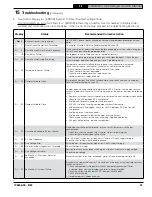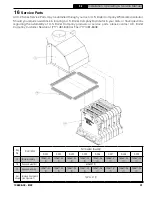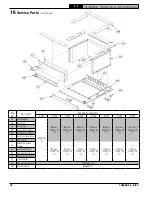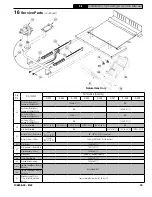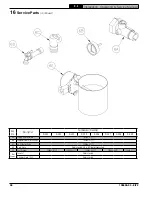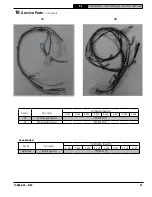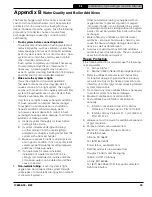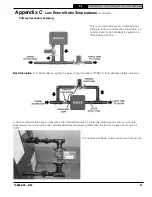
106636-04 - 8/22
50
X-2
Installation, Operating & Service Manual
Appendix C
Low Return Water Temperatures
Thermal Shock:
Cast iron boilers are very robust. 110oF and below return water temperatures will not cause thermal shock to U.S.
Boiler castings.
Condensation is a different matter:
Cast iron boilers will tolerate intermittent periods of condensation, but are not designed for extended condensation
periods. Water temperatures below 120oF cause condensation that damage cast iron, burners and other
components. This is not unique to U.S. Boiler designs. All cast iron boilers act the same way.
Typical high temperature [170oF and higher] fin tube radiation heating systems will have short condensation cycles in
'shoulder' seasons, early and late parts of the heating season. Short term condensing during these heating season
'shoulders' is unlikely to cause problems.
Larger volume systems during the 'shoulder' heating seasons or systems with aggressive set back or low
temperature systems will cause extended condensation periods that will shorten boiler life.
Simple Boiler By-Pass systems
are common and they can solve flow problems. These simple by-pass piping
arrangements can help reduce condensation.
Regardless of by-pass flow, boiler will have inlet temperatures that are same as system return temperature. When
boiler inlet temperatures fall below 120oF, boiler will condensate. As by-pass flow is increased, less water flows
through boiler which increases boiler temperature rise. This will help reduce propensity for condensation but will not
stop it.
The problem with these fixed by-pass arrangements is just that. They are fixed. As flow changes with different zones
opening or water temperatures change, a simple by-pass system cannot react since it is fixed.


